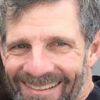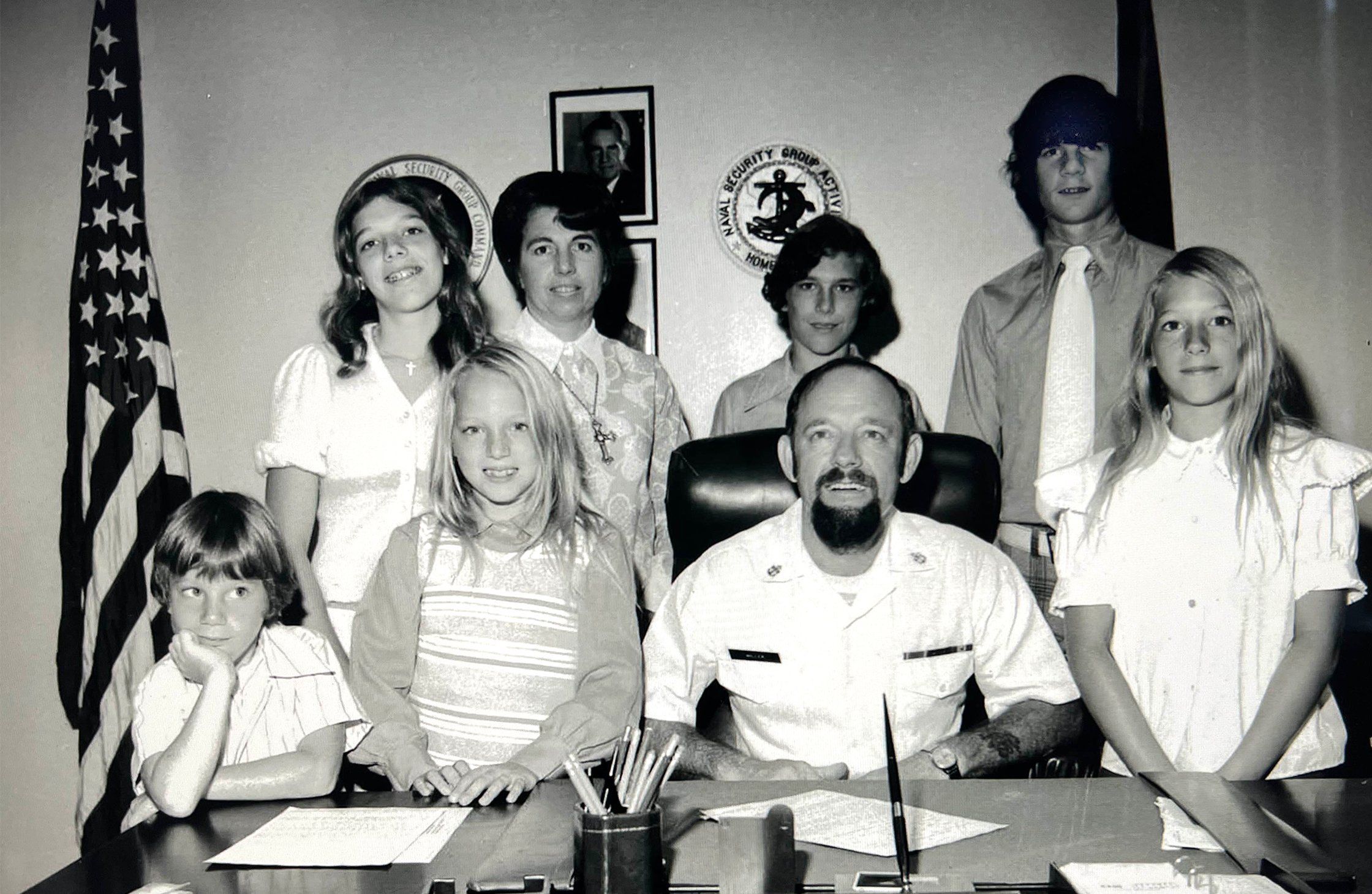Miller family circa 1973 when Dad was part of a program to improve race relations in the Navy.
Narrated by Ted Miller

My father died just after midnight.
He died peacefully at home, surrounded by people who loved him, like my mother did forty-three years before him.
Unlike my mother’s death, which happened when I was away at sea, I was in the room as my father took his last breath. I have searched for words to describe my experience that night, but language is sometimes incapable of communicating what we can only feel with our hearts — that which cannot be measured by science or reason.
Long ago, I stopped believing in the existence of a spiritual realm. But I felt something present in that room that is difficult to explain. Poets write with metaphors and priests talk of god, but nothing can adequately capture the uniquely human experience of a loved one’s death.

After ninety-two years of a vibrant and active life, Dad’s health had deteriorated rapidly. His pain became more difficult to manage as doctors tried in vain to identify a cause. He was in and out of the hospital. On Father’s Day, he had recovered from sepsis and was happy to be feeling better. His last text to me was: “I’m ok. I’m going home.”
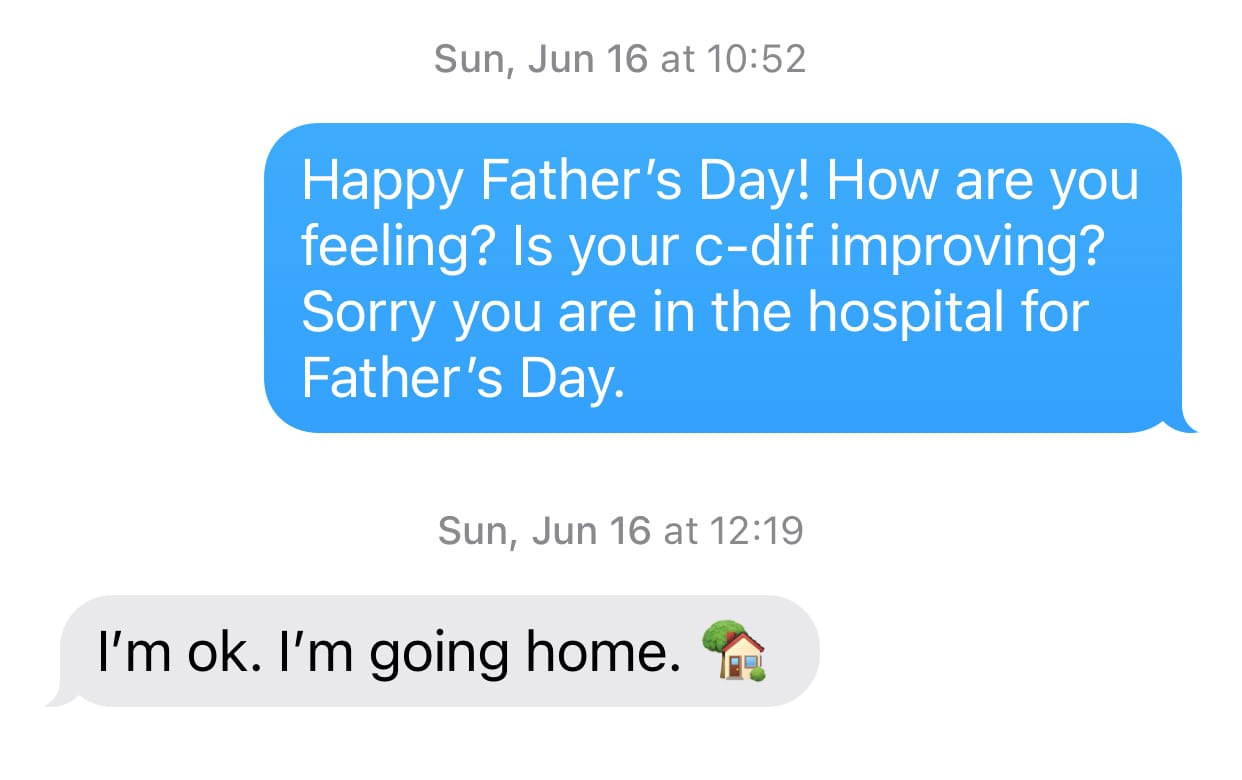
But the improvement didn’t last. In a matter of hours, swallowing became difficult and eating impossible. My brother and sister were ready to send him back to the hospital, but Dad made it very clear he did not want to go. He was tired of fighting and tired of the pain.
That night I received the call no child ever wants to get. It was time.

Dad began hospice care Monday morning to make him as comfortable as possible in his final hours.
When I arrived Monday evening, my father was lying in bed with several family members sitting with him, holding his hand, and caring for his needs. He was so different from the man I had hugged goodbye at the airport just weeks earlier, promising to return again soon. I held his hand and stroked his face, letting him know I was there, with my wife and youngest son also at his side.
The last of us six siblings arrived a few hours later, and we were finally all together with Dad. I think he knew.
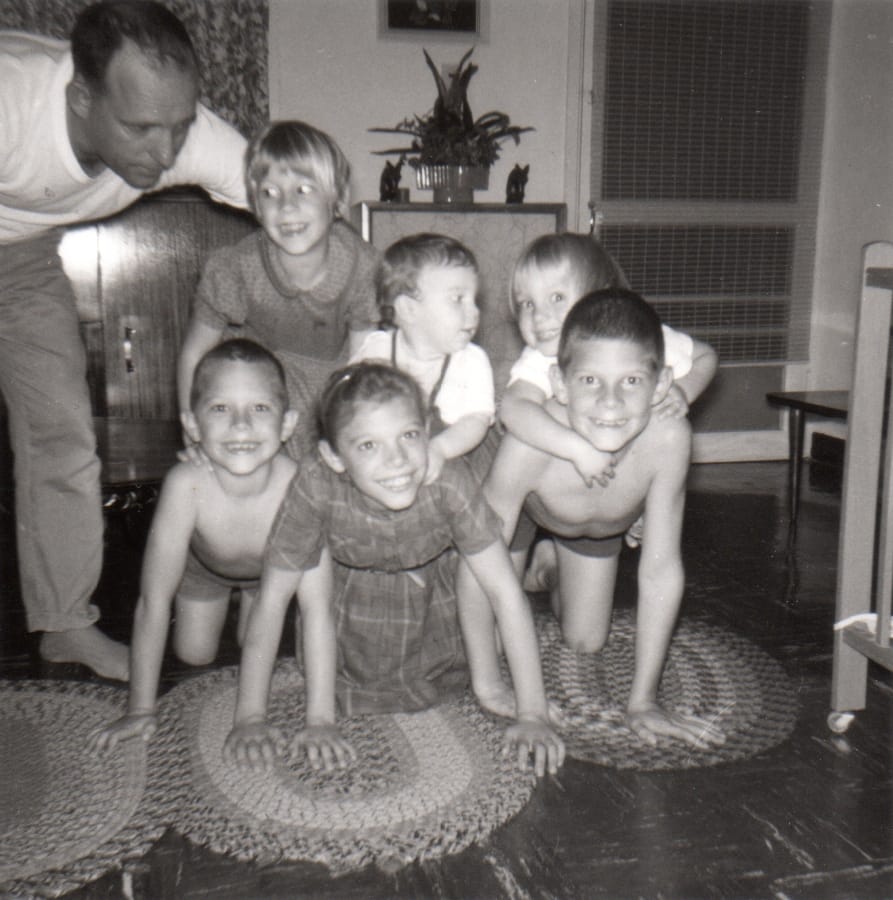
When my daughter arrived after an eleven hour drive, she took my place holding his hand, speaking softly to him, and moistening his drying mouth with drops of water. Somehow, she knew exactly what to do.
Indeed, everyone present was helping in their own way. One would explain what was happening, another would provide comfort to a family member, another would monitor my father’s needs. We took turns by his side.
Just before midnight, my oldest son, his wife, and my two grandsons arrived. Papa, as they called him, must have known they were there.
Minutes later, my father’s breaths slowed and then stopped. He was no longer in pain.
Although there was a heavy sadness in the room, there was also warmth and comfort.

Our parents gave us something that binds us together, a connection stronger than any of our differences. Each of us reacted differently at the moment of Dad’s death, yet each of us supported one another in our grief. And that bond shared through six decades is the love of our parents.
From the time we were children, our mother and father not only taught us to love, they demonstrated how to love through their actions.
When someone needed a loving home, our parents invited them to live with us, even though we had little room to spare.
When a friend needed comforting, our parents became the comforters.
When a stranger needed food or clothing, our parents shared what little they had to ease their suffering.
And when one of us would get into an argument with friends, our parents showed us that differences could be resolved without violence.
We grew up in a Navy family, living in many different countries, among other cultures and religions. My parents taught us that we are all human, we all deserve the same dignity, and that none of us are better than anyone else.
My father’s last duty assignment was as part of a team to end racial tension in the Navy. He described how his partner, a Black man, was treated differently in the community even though the two of them were doing the same thing. He told me about the racial epithets directed at his partner during the sessions they facilitated. The lessons he learned — about himself, about racism in the military, and about the hatred he witnessed — have helped me on my own journey to know better so that I can do better. He shared the lessons of love taught by Dr. Martin Luther King, Jr. at a time when Dr. King was still being vilified by most Americans.
Our parents taught us to love.

Although our father was unable to speak in his last moments, my brothers and sisters told me our mother’s last words were: “Love, love, love…” which she repeated until her final breath.
My parents were not perfect, and we have had our difficulties as a family. But because we have love, we can make it through the tough times together.
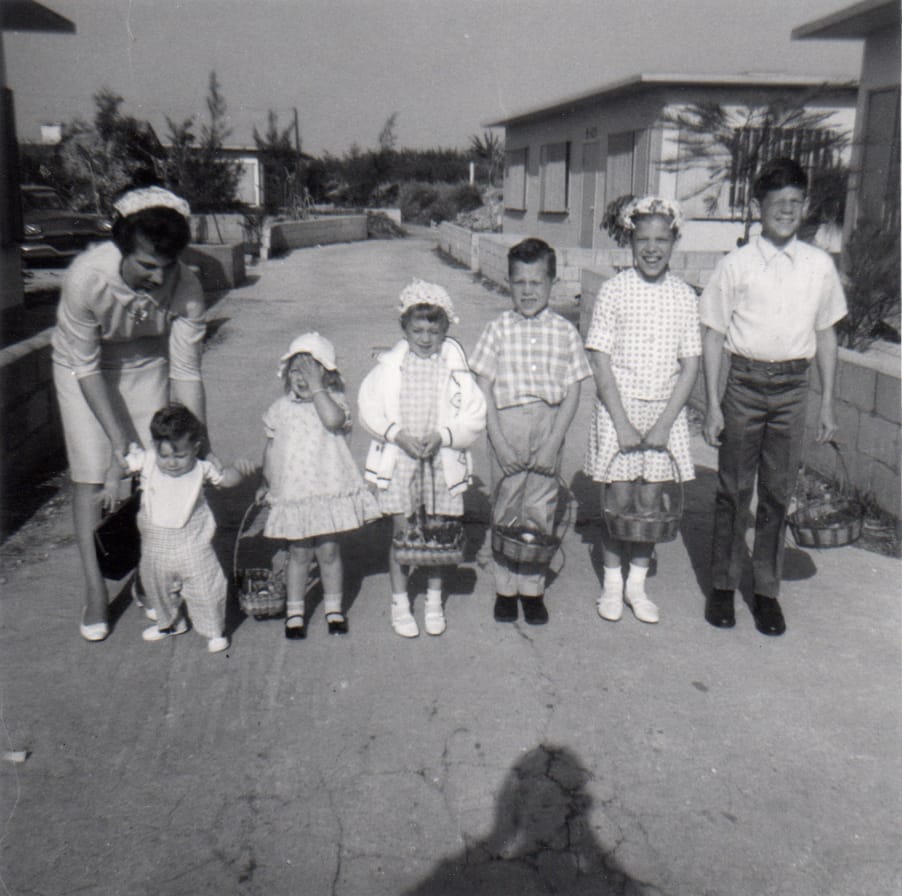
Those present said there was something spiritual in the room when my mother died. And I felt that spirit in my father’s last moments — the human spirit that connects us to all life. The spirit we call love.
If more of us lived a life of love for each other, the world would be a better place.

My father took his last breath at about seven minutes past midnight on June 18, 2024.

